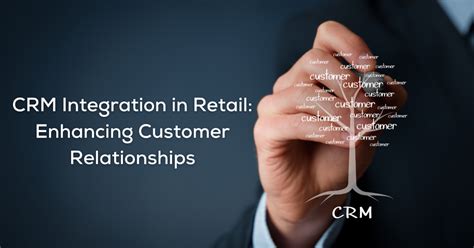In the fast-paced world of retail, customer experience is the key differentiator. Whether it’s an online store, a brick-and-mortar shop, or an omnichannel business, retailers must manage customer relationships strategically to build loyalty and increase lifetime value. This is where CRM software for retail becomes a vital tool.
CRM (Customer Relationship Management) software helps retail businesses understand, engage, and retain their customers by organizing customer data, tracking interactions, and automating personalized communications. It transforms how retailers connect with their audience—making customer engagement smarter and more efficient.
What is CRM Software for Retail?
CRM software for retail is a specialized solution designed to meet the unique needs of retailers by helping them manage customer information, sales data, loyalty programs, and marketing efforts from a centralized platform.
Unlike generic CRMs, retail-focused CRMs often include integrations with point-of-sale (POS) systems, eCommerce platforms, inventory management, and customer feedback tools. These systems are tailored to support high-volume transactions, real-time data updates, and personalized marketing.
Why Retailers Need CRM Software
Retailers face challenges like high customer turnover, stiff competition, and increasing customer expectations. CRM software offers a powerful way to turn one-time buyers into loyal customers by enabling:
-
Customer Segmentation: Identify and group customers based on behavior, purchase history, or demographics.
-
Personalized Marketing: Send targeted promotions, product recommendations, and follow-up messages.
-
Sales Insights: Track sales performance and customer preferences to optimize inventory and campaigns.
-
Loyalty Management: Manage rewards programs and customer engagement initiatives.
-
Omnichannel Integration: Provide a seamless customer experience across online and offline platforms.
Key Features of CRM Software for Retail
| Feature | Benefit |
|---|---|
| Customer Database | Stores contact details, preferences, and transaction history in one place. |
| POS Integration | Connects sales transactions directly to customer profiles. |
| Automated Marketing | Sends emails, SMS, and app notifications based on customer actions. |
| Loyalty Program Management | Tracks points, rewards, and redemption activity. |
| Analytics and Reports | Provides insights into customer trends, sales data, and campaign performance. |
| Feedback Collection | Captures customer satisfaction data to improve service quality. |
Benefits of CRM in the Retail Industry
1. Stronger Customer Relationships
CRM tools allow retailers to build long-term connections by understanding what customers want and delivering it at the right time.
2. Higher Customer Retention
Through loyalty programs and personalized offers, CRM systems help retailers retain customers and reduce churn.
3. Improved Marketing ROI
With customer segmentation and behavior tracking, marketing becomes more relevant and cost-effective.
4. Better Inventory Planning
By analyzing customer buying habits, retailers can stock what sells and avoid overstocking.
5. Enhanced Customer Service
Quick access to customer histories helps staff resolve issues faster and deliver a more personal experience.
Top CRM Software Options for Retail
Here are a few CRM platforms that are well-suited for the retail sector:
. Salesforce Commerce Cloud
An enterprise-grade CRM with robust features for managing customer data, AI-driven personalization, and eCommerce integrations.
. Zoho CRM for Retail
Offers POS integration, automation, and multi-channel support for small to mid-sized retailers.
. Lightspeed Retail CRM
A POS-focused CRM that helps brick-and-mortar stores manage customer loyalty and sales history.
. Shopify CRM (via apps like Klaviyo or HubSpot)
Ideal for online retailers, with powerful marketing automation and real-time data sync.
. Vend (by Lightspeed)
Combines POS and CRM capabilities to offer customer tracking, sales analytics, and loyalty tools.
Real-World Use Case
A mid-sized clothing retailer uses Zoho CRM integrated with its POS system. Every customer purchase updates their profile in real-time, enabling the marketing team to send personalized follow-up emails—like size-specific restock alerts or birthday discounts. This targeted engagement strategy helped increase their customer retention rate by 25% in just six months.In retail, the difference between success and stagnation often comes down to how well you know—and serve—your customers. CRM software for retail equips businesses with the tools to deliver personalized experiences, optimize marketing, and build lasting loyalty.
Whether you’re a boutique store or a nationwide chain, the right CRM solution can streamline your operations and deepen customer relationships, turning everyday buyers into lifelong brand advocates.
In today’s retail world, it’s not just about selling—it’s about connecting. And CRM makes that connection count.
Benefits of CRM Software in Retail
1. Better Customer Insights
Know who your best customers are, what they buy, how often they shop, and what promotions appeal to them.
2. Improved Customer Retention
Stay in touch with your customers through personalized messages, loyalty rewards, and follow-up communications.
3. Higher Sales Conversion
Use data-driven insights to send the right message to the right customer at the right time.
4. Streamlined Operations
Automate customer communications, schedule promotions, and track inventory performance from one dashboard.
5. Enhanced Customer Experience
Deliver seamless service whether customers shop online, in-store, or through mobile apps.
Best CRM Software for Retail Businesses
Here are some top CRM options designed specifically for retail environments:
. Lightspeed Retail
An all-in-one retail POS system with CRM features, inventory management, and omnichannel capabilities.
. Vend (by Lightspeed)
Great for small and mid-sized retailers, offering customer profiles, sales analytics, and loyalty program tools.
. Salesforce Commerce Cloud
A powerful CRM for large retail operations with AI personalization, mobile commerce, and marketing automation.
. Zoho CRM
Affordable and flexible with strong marketing automation, segmentation, and eCommerce integrations.
. HubSpot CRM (with eCommerce integrations)
Free to start and highly customizable for retail marketing, customer engagement, and sales pipelines.
Real-World Example
A mid-sized fashion boutique uses Lightspeed Retail CRM to track customer purchases and preferences. With personalized email campaigns and a loyalty program that rewards frequent buyers, they saw a 20% increase in repeat customers and a 15% growth in average order value within six months. The CRM also helped the team identify slow-moving inventory and adjust marketing efforts accordingly.
CRM in Omnichannel Retail
Modern shoppers switch between online and offline experiences. A CRM system bridges these channels by syncing customer data across:
-
eCommerce platforms (like Shopify, WooCommerce)
-
Physical store POS systems
-
Email marketing tools (like Mailchimp)
-
Social media and chatbots
This ensures that customers receive a unified, personalized experience no matter where they engage with your brand.
Final Thoughts
In the retail industry, where competition is fierce and customer loyalty is hard-won, CRM software is more than a convenience—it’s a necessity. By organizing customer data, enabling personalized communication, and streamlining operations, CRM helps retailers deliver better experiences and build lasting relationships.
Whether you’re a small boutique or a national chain, investing in the right CRM software for retail can be the turning point that transforms transactions into relationships—and relationships into long-term revenue.
The future of retail is personal. CRM makes that possible.

